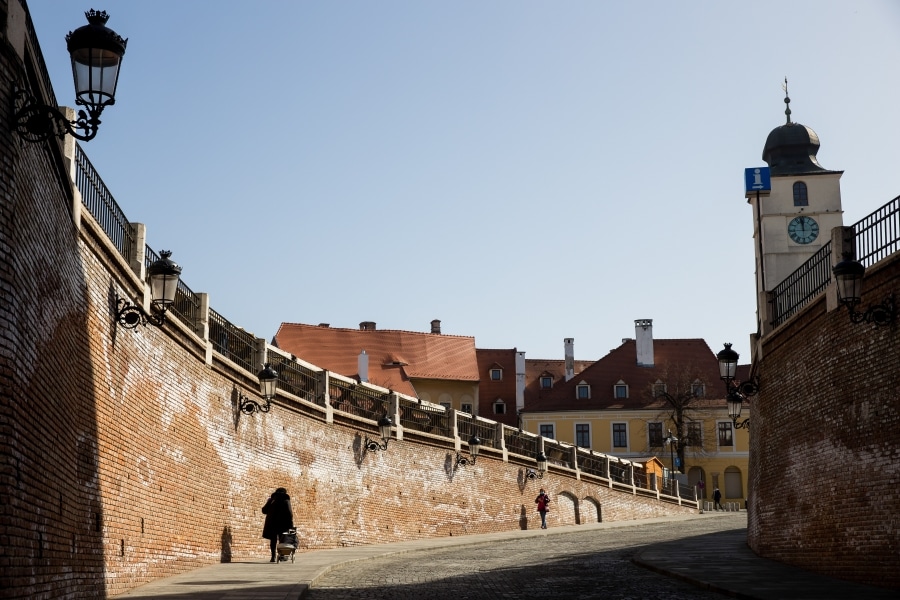On the way to Cârlibaba, I'm listening to the radio: 'Mrs. Teacher,' the reporter asked on the radio during a program about the teacher's strike, 'many would consider a net salary of 6,800 lei (around 1400 euro) to be a decent salary, wouldn't they?' After a moment or two of silence, Mrs. Teacher responded uncertainly, repeating the word 'decent' with half a question mark, and then continued, 'decent, I don't know, it just doesn't seem to be enough anymore.' Here, I realized that all of us - the reporter, Mrs. Teacher, and I have lost the notion of defining a decent salary in Romania.
With the rapid inflation, we have lost our reference points, and the value anchors no longer hold when it comes to a decent salary. But there is another problem above all. A decent salary is also defined in relation to the people around you - and here lies a problem for those who belong to the middle class, like Mrs. Teacher and me as a small entrepreneur with a struggling tourism business from which I can barely draw a similar salary.
In the Netherlands, where many politicians ride bicycles to work, when you occasionally see a car worth 80,000 euros or more, you can be sure it's driven by a young footballer or an elderly gentleman with a successful business.
Often, when I think about a problem in Romanian society, I try to make a comparison with my home country - the Netherlands. There, I had a small business, and I was part of the middle class. Like any other person, you continuously measure yourself against the people around you—people you encounter in traffic, at the store, at work, at your children's school, and so on. And, of course, there are occasions when you compare yourself to people with a better financial situation than yours, and you might feel outsmarted - someone was smarter than you, made better life choices, discovered something, managed a business more efficiently, made a career in politics. But in the end, you find your peace, everyone has a given talent, and we all do different things in life - and you focus on what needs to be done next.
In Romania, it's a bit different. I don't often feel outsmarted here. Instead, the phenomenon of comparing yourself to others has a different component. We are surrounded by many people who can afford anything, who proudly flaunt their much better financial situation than ours without a clear origin of their success. In Romania, the roads are filled with expensive luxury cars while their drivers seem to have a submedia IQ, who don't seem to have achieved anything exceptional. In this context, you don't feel outsmarted; you feel 'out-schemed.' And this is exactly the decisive factor in defining a decent salary in Romania. You feel that compared to others, your salary is no longer decent, according to your qualifications and the effort you put in. This creates a perception of poverty. What was once an okay salary is no longer considered decent in the face of their extravagance. This fosters a feeling of being unjustly treated and raises questions like, 'Where did I go wrong? Where did the people working in education go wrong?'"
In addition to the perception of poverty, there is also a real trend related to the purchasing power of the middle class. To understand what has happened, society needs to be dissected. Like in any country, there are two distinct groups: public sector employees and the private sector. Public sector salaries are covered by the taxes paid by the private sector. In Romania's specific context, there are two additional groups: those who have left the country and the group referred to as the "system." The latter group is not clearly defined, and no one openly declares themselves a member, but it's a more sinister club, and we all know what it's about - the octopus, the clan, the mafia are other terms used. Here, some public sector employees with decision-making roles gather with individuals from the private sector around a common interest - mayors with contractors, forestry officials with timber exploitation companies, real estate developers with judges, senators with land investors, all surrounded by lawyers, advisors, and control institutions as their means of enforcement. They've created a system where they share a portion of the country's budget, some of the country's natural wealth, and some of the European funds among themselves. These are the people who drive the most expensive cars with license plates ending in GOD or HHH, just to illustrate their bad taste.
The aggressive rise in prices we've witnessed in recent years is based on the high purchasing power of the expatriate group (earning salaries in the West), but primarily on the group referred to as the "system," where spending knows no bounds, thus leading to the actual impoverishment of the middle class. I recall an event in Mamaia resort where thousands of euros worth of champagne were consumed, brought in with a wheelbarrow. On the same occasion, I saw teachers asking if they can pay with meal vouchers or holiday vouchers – the contrast is shocking.
One of the serious issues in the Romanian economy is that the public sector group is oversized compared to the private sector. The system exerts increasing pressure on the private sector by inventing more and more taxes, leading many private businesses to close or their owners to leave the country, worsening the situation with each passing day. I'll give you two examples to convince you that Romania's economic situation is not sustainable and that grotesque symptoms are emerging, taking increasingly Kafkaesque forms. Now, on restaurant bills, you have to check the tip box (formerly called "ciubuc"), ranging from 10% to 20% – who came up with such nonsense? With these malevolent measures, the Romanian government is driving people away, as evidenced by the fact that tax revenues haven't increased – people will do anything to avoid the system. Another absurd measure is one that obliges HORECA entrepreneurs to create a list of the calorie and protein content, etc., of the foods in their kitchen. Such a rule doesn't exist in any European country. Instead of focusing on their business, as an entrepreneur you need to waste time and money fulfilling the whims of government officials – another method of constraining the private sector. Sometimes when I write about Romania, I start to hear a voice in my head - mayday, mayday!
Returning to the teachers issue – where did they go wrong? The society we have today reflects the education system from 10 or 20 years ago – I say this without any resentment, but the education system has not operated at an ethical standard. One phenomenon is the inflation of diplomas – degrees that were given too easily and were negotiable - its clear that such a diploma holds little value for the owner of it, and for others it's hard to distinguish a deserved one from a paid one. Too many cases of plagiarism are evidence of the dysfunctionality of the education system. As long as money (bribery) is demanded for a teaching position, it leads me to believe that some teachers are indeed part of the corrupt system. I can't generalize, and I apologize to every teacher or educator who has worked for years without compromising their integrity – but in conclusion, I say: a decent salary requires impeccable behavior. If we don't set an example for ethical living in education, where else can we find hope?
The fact that the situation in education is not entirely positive is illustrated by a few examples. I have friends who are withdrawing their children from public schools and opting for homeschooling. Other children (especially those within the system) are sent to expensive foreign universities, and their parents pay tens of thousands of euros per year for their education, after their children have studied in the free state education system. Wouldn't it be logical for them to pay a contribution for the education received in Romania first? Would they pay the same amount to a university in Romania? It's not that young people learn better or more abroad, but the diploma from there holds a different value, its a real one – and one day, it will pave the way for an important position!
Another undiscussed aspect is that parents pay a lot of money for extracurricular tutoring by teachers, something that doesn't exist abroad. This either means that the school curriculum doesn't cover enough, or teachers give low grades to attract students for private tutoring, thereby supplementing their income significantly and tax-free (unlike waitstaff with tips on the fiscal receipt). Not all teachers are lucky, only those who teach important subjects for which exams are given. Hence, the material difference between teachers grows and envy arrises. But I ask you – is this the way we want to organize education in our country? Please consider my questions as your homework, dear teachers!
Perhaps we can find a method to get rid of the old-guard politicians who cling to their seats like burrs on velvet upholstery. Perhaps in this way, we can achieve a leaner administration. Let's harness the intelligence of the new generations and change the future! I invite you to come up with fresh ideas!
I have written articles in which I have been harsh about the country's leadership, but to be honest, I don't envy those who have to govern Romania at all - it's a puzzle with an extremely high level of difficulty. Political parties have each shown their incapacity, and the election campaign will begin shortly. There is a populist party that people still have hope in, but rest assured, no populist party in Europe has ever fulfilled its promises. Let's not forget that even the President of Romania has declared that the state has failed (forgetting that the idea was for him to lead it). I believe it's time to think about how we can organize ourselves differently in order to set things right in Romania.
Perhaps we can find a form of more direct democracy, aided by the IT sector, to create a system of referendums on important decisions, bypassing political parties. Maybe we can find a way to get rid of the old-guard politicians who cling to their seats like burrs on velvet upholstery. Perhaps in this way, we can achieve a leaner administration. Let's put into value the intelligence of the new generations and change the future! I invite you to come up with fresh ideas!



